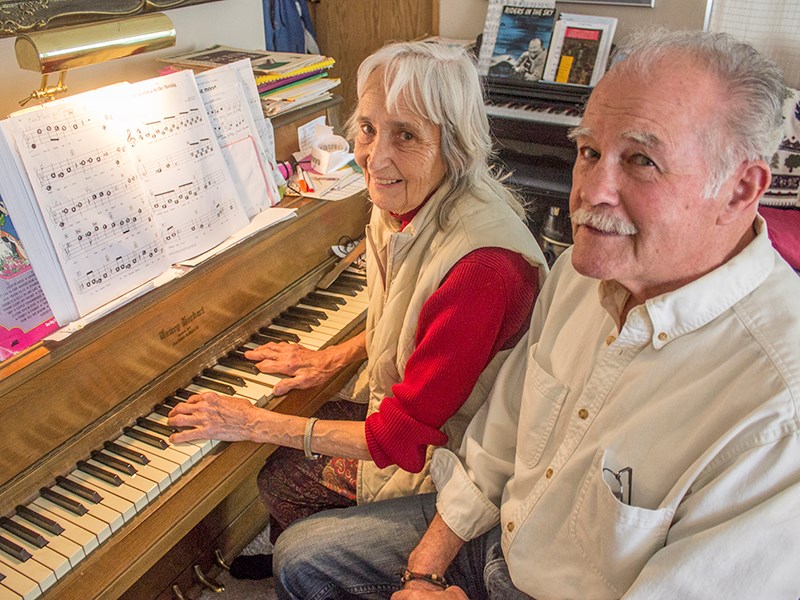Four years after the BC government agreed to make changes to the way it assesses the driving of seniors in the province, the issue of computerized testing continues to raise questions among Powell River residents.
Some local seniors who have been taken off the road say they have been treated unfairly. One of those voices comes from 86-year-old resident and pianist Myrna Ahern, who has been fighting for the past five years to get her licence back.
“I can’t do what the community needs me to be doing without being able to get there,” said Ahern. “I’m sick and tired of this.”
Ahern said not having a licence has made it hard for her to play piano for seniors at Evergreen Extended Care Unit, Powell River General Hospital and several area churches.
Ahern’s friend Richard Dignard has been alongside her during the battle and said it has been difficult to watch her suffer through bouts of depression and a loss of independence.
“She’s a prisoner in her own town,” said Dignard. “It seems mind-boggling that these people can’t see what they are doing when they take licences away.”
According to RoadSafetyBC, the provincial body that replaced the BC Motor Vehicle Branch, screening tools are needed to accurately identify medically at-risk drivers.
All drivers over the age of 80 must have a Driver’s Medical Examination Report (DMER) completed every two years by their family physician to be able to renew their driver’s licence.
These drivers may also be required to undergo additional medical or functional assessments, such as DriveABLE, SIMARD MD or a road test.
In 2010, Ahern was one of the first seniors over 80 years old to take the DriveABLE test in Courtenay, said Dignard. She thought she was going there for a road test, but when she arrived, she was faced with a computer, something she had no knowledge or experience with, he said.
“Of course she failed,” said Dignard.
In 2012, after public pressure, the province agreed to change the process to give seniors the ability to take a road test if they did not pass the computer touchscreen test.
With the help of Powell River-Sunshine Coast MLA Nicholas Simons, Ahern was able to take a road test, which she passed in 2012. She regained her licence for a year, but then she was asked to go in for a reassessment and has been fighting to regain her licence ever since.
“I know her and I wouldn’t let her drive if she was unsafe, but she’s a great driver,” said Dignard.
According to RoadSafetyBC, the reason why this level of testing is required is drivers aged 80 and older are involved in more crashes per kilometre than almost any age group, and they are also more likely to die in those crashes.
While that is statistically true, Simons said the statistics also show seniors are safer drivers because of the number of years of experience behind the wheel and, when they do drive, they do not go far and do not drive in conditions they are uncomfortable in.
“Seniors self-regulate their driving and often have wiser decision-making processes than younger drivers,” said Simons.
Questions have been mounting about the lack of consistency and accuracy in the testing. Simons said the issue needs more attention because it takes good drivers off the road and leaves bad drivers on the road at about a 50 per cent accuracy rate.
“The basic science of testing seniors' driving at age 80 is that it’s not effective,” he said.
Simons said the testing seems to be a response to a perceived problem and a stereotype of elderly drivers.
“Seniors have been treated badly by the current system in place,” he said.
Simons continues to question the need for the assessments, saying the province brought the tests in without the science to back the claims of their effectiveness. He added that the tests have still not been peer-reviewed.
According to Ministry of Public Safety and Solicitor General, of the 3.2 million drivers in the province, approximately 150,000 are assessed for medical fitness to drive annually.
This includes drivers aged 80 and older and drivers with known medical conditions. Approximately 4,000 drivers are found medically unfit to drive; approximately 2,000 drivers do not comply and have their driver’s licence cancelled; and approximately 800 drivers voluntarily surrender their driver’s licence.



